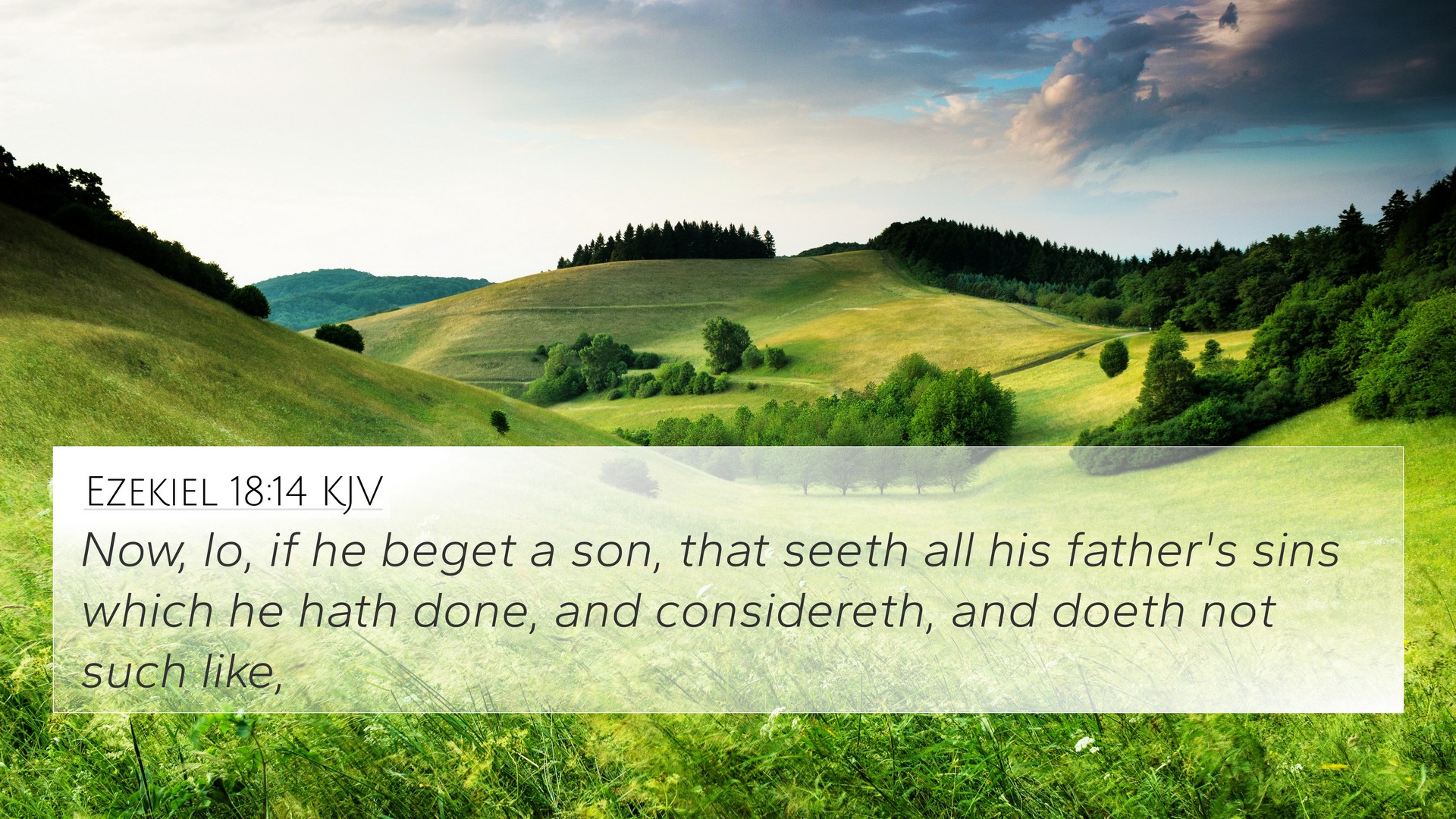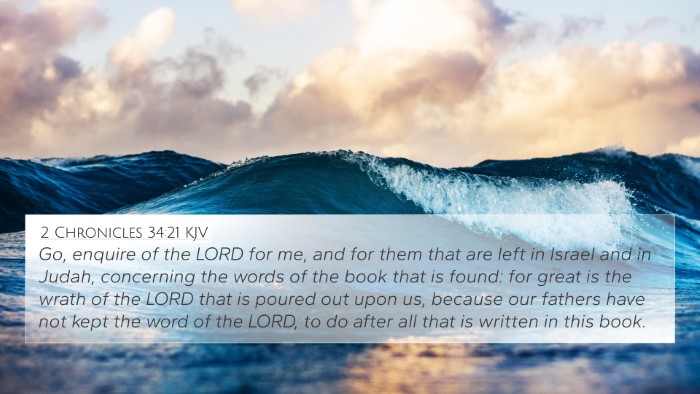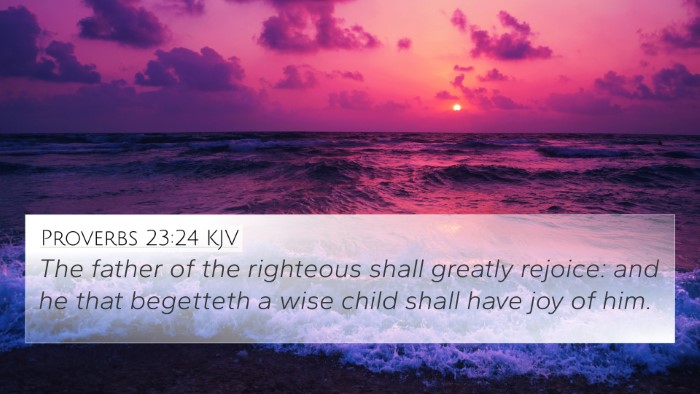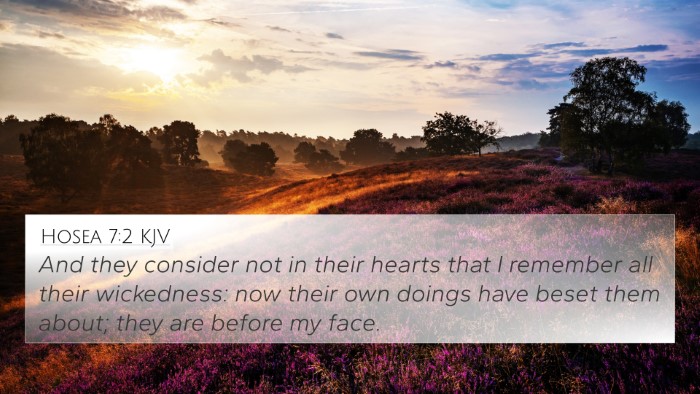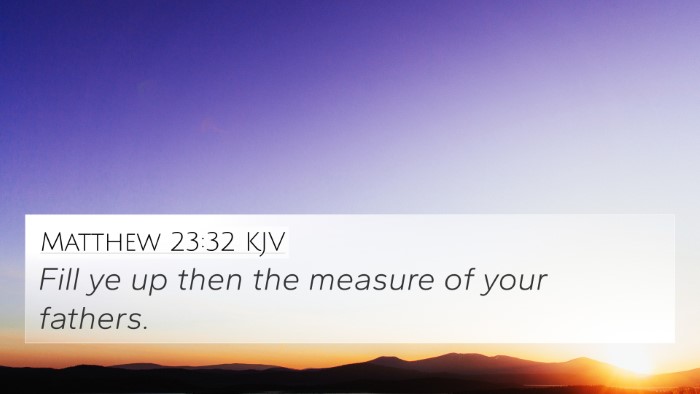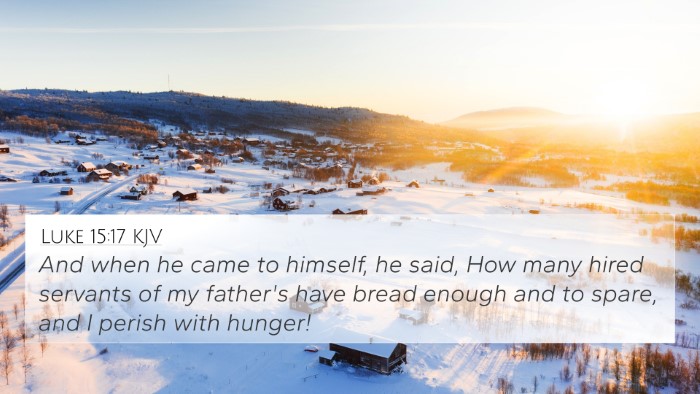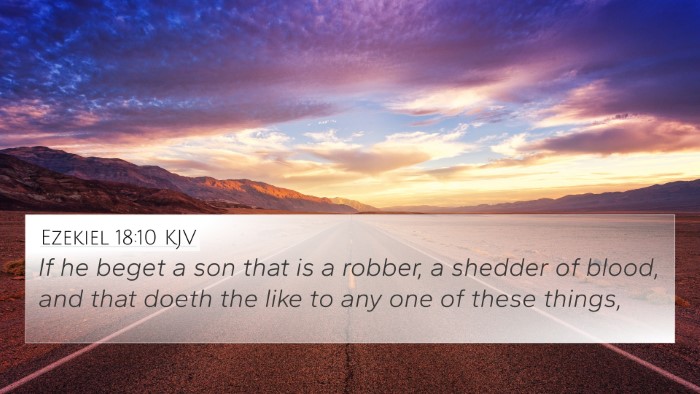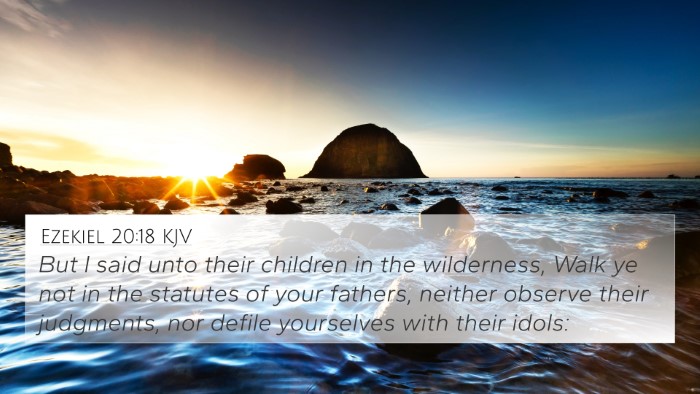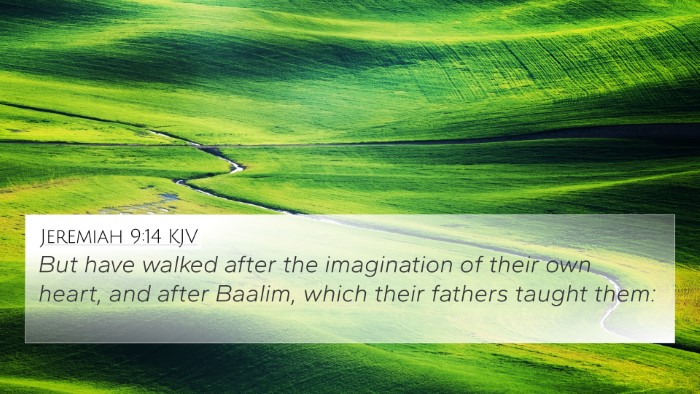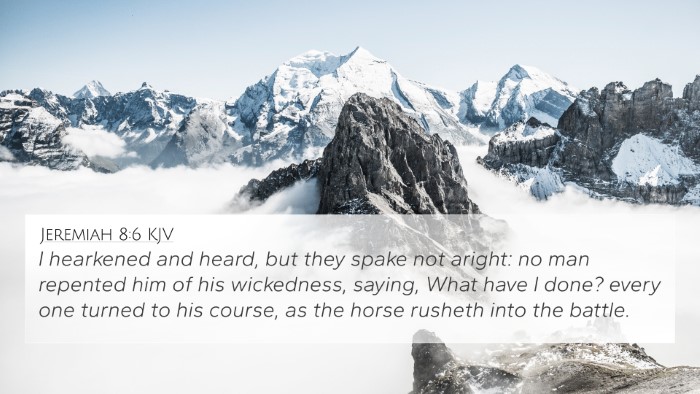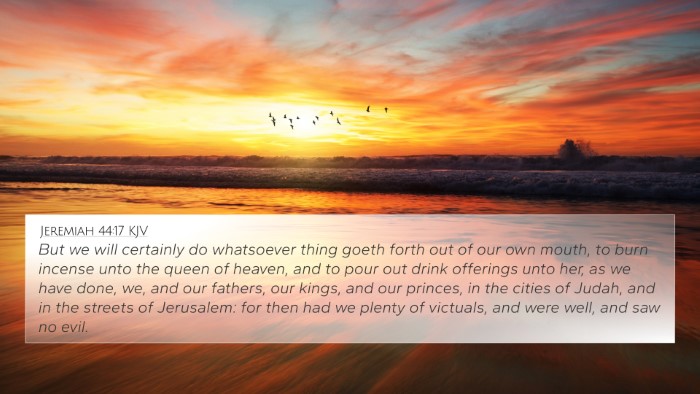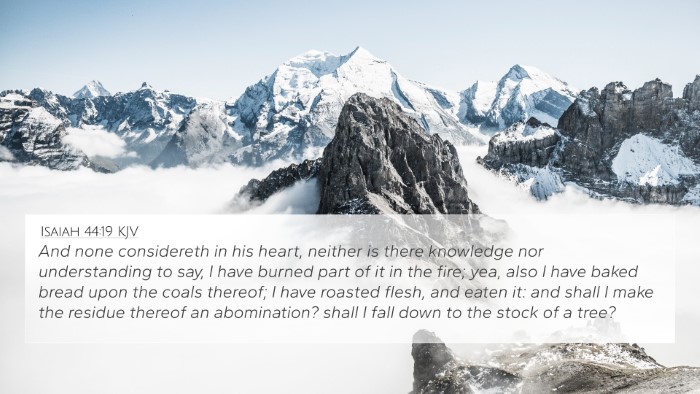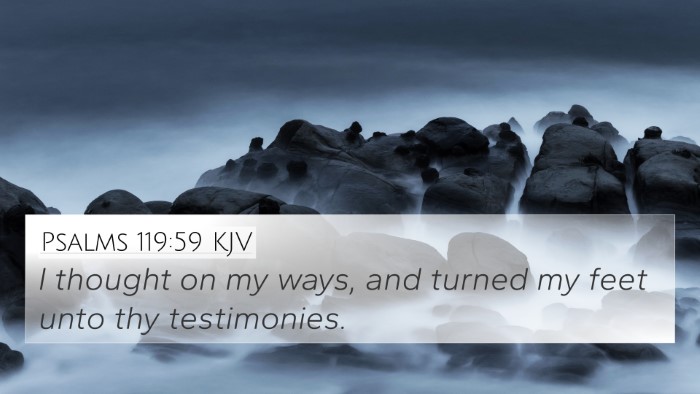Ezekiel 18:14 - Summary and Commentary
Ezekiel 18:14 states: "Now, behold, if he beget a son, that seeth all his father's sins which he hath done, and considereth, and doeth not such like." This verse highlights the personal responsibility in sin and the choice to follow right paths, regardless of parental influence.
The essence of Ezekiel 18:14 revolves around the theme of individual accountability in one's relationship with God, emphasizing that one is not bound to follow the sinful patterns of their predecessors.
Insights from Public Domain Commentaries
-
Matthew Henry Commentary:
Matthew Henry emphasizes the importance of free will and personal decision-making in this verse. He notes that while a son may witness the sinful actions of a father, he has the capability and moral duty to choose a different path contrary to those sins.
-
Albert Barnes Commentary:
Barnes highlights that the passage underscores that knowledge of evil should lead one to avoidance of it. He focuses on how this verse fulfills the principle of justice in God’s character, indicating that each individual is judged by their own actions and not condemned for the sins of their parents.
-
Adam Clarke Commentary:
Clarke notes the progressive revelation of God's justice through this text. He interprets it as an affirmation of the ability to break free from generational sin, stressing that even if one is surrounded by wrongdoing, they have the power to change and choose righteousness.
Connections and Cross-Referencing Biblical Texts
Ezekiel 18:14 can be cross-referenced with several Bible texts to deepen the understanding of its themes:
- Deuteronomy 24:16: "The fathers shall not be put to death for the children, neither shall the children be put to death for the fathers: every man shall be put to death for his own sin." This reinforces the theme of individual responsibility for sin.
- Galatians 6:5: "For every man shall bear his own burden." This New Testament verse continues the idea of personal accountability elaborated in Ezekiel.
- Romans 14:12: "So then each of us shall give account of himself to God." This verse connects the individual’s accountability to God and their actions.
- Jeremiah 31:30: "But every one shall die for his own iniquity." This also signifies that God’s judgment is based on individual choices rather than inherited sin.
- Proverbs 20:7: "The just man walketh in his integrity: his children are blessed after him." This reinforces the positive consequences of living a righteous life.
- 2 Corinthians 5:10: "For we must all appear before the judgment seat of Christ; that every one may receive the things done in his body, according to that he hath done, whether it be good or bad." This further stresses individual accountability in the spiritual life.
- Exodus 20:5-6: "Thou shalt not bow down thyself to them, nor serve them: for I the LORD thy God am a jealous God, visiting the iniquity of the fathers upon the children unto the third and fourth generation of them that hate me; and showing mercy unto thousands of them that love me, and keep my commandments." These verses clarify that while familial sins may have effects, loving obedience can break the cycle.
Comparative Bible Verse Analysis
In conducting a comparative analysis of Ezekiel 18:14 with these cross-referenced verses, it becomes clear that the Bible presents a holistic view of sin, judgment, and grace. Each individual is called to actively choose their own path, essentially engaging in what can be termed as inter-Biblical dialogue, where themes and teachings intersect through the scriptures.
Thematic Bible Verse Connections
The thematic links between these scriptures provide a robust framework for understanding the broader biblical narrative about sin and redemption:
- Individual Responsibility: Emphasized in verses mentioned, aligning with the message of Ezekiel 18:14.
- Generational Consequences: The influence of parental sins vs. personal choice.
- Judgment and Accountability: Connection through divine assessment of personal actions.
- Possibility of Change: Encouragement found in many scriptures about transformation and redemption.
- Mercy and Justice: The balance between God's justice against sin and His mercy towards the repentant.
Tools for Bible Cross-Referencing
For those seeking to dive deeper into the study of Biblical texts and how they connect, various tools for Bible cross-referencing are available:
- Utilizing a Bible concordance to find words and themes across scriptures.
- Employing a Bible cross-reference guide to explore relationships between various passages.
- Engaging in cross-reference Bible study to see how different verses apply to the same theme.
- Exploring a Bible reference resource for comprehensive cross-references.
- Using a Bible chain reference system to create thematic connections.
Conclusion
The message from Ezekiel 18:14 is profound and extends into multiple facets of spiritual life, emphasizing that individuals are not merely products of their heritage but are free moral agents capable of making choices aligned with God’s will. The interconnectedness of scripture through cross-referencing not only enhances understanding but also enriches the believer's faith journey.
In seeking a deeper interpretation of Bible verses and their reciprocal relationships, one can uncover the richness within the Biblical text that speaks to the nature of God's justice, mercy, and the believer's journey of faith.
